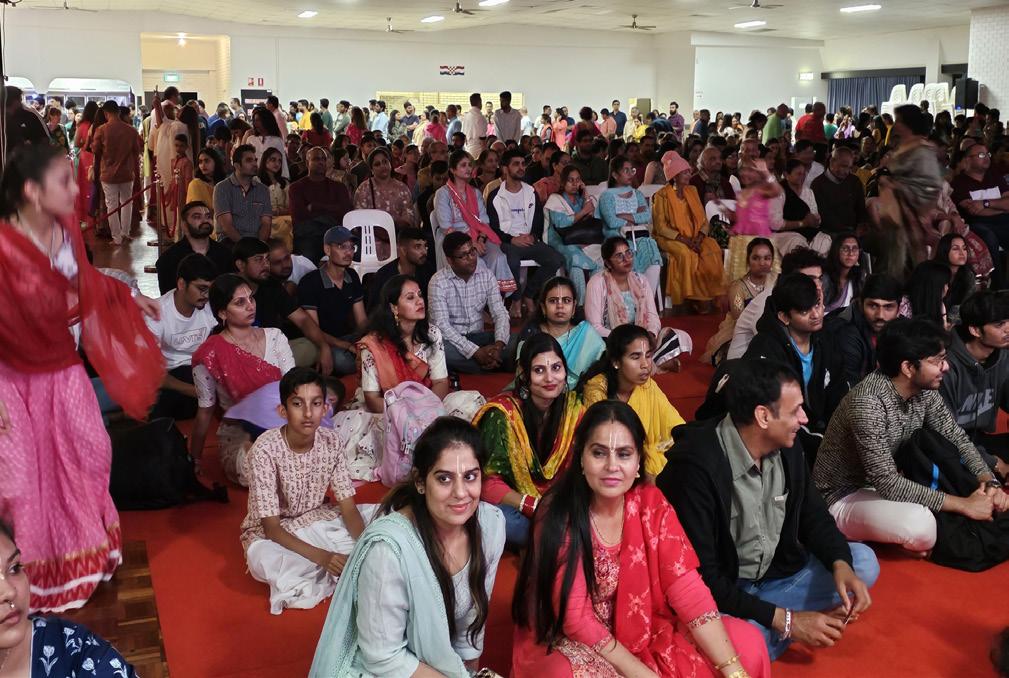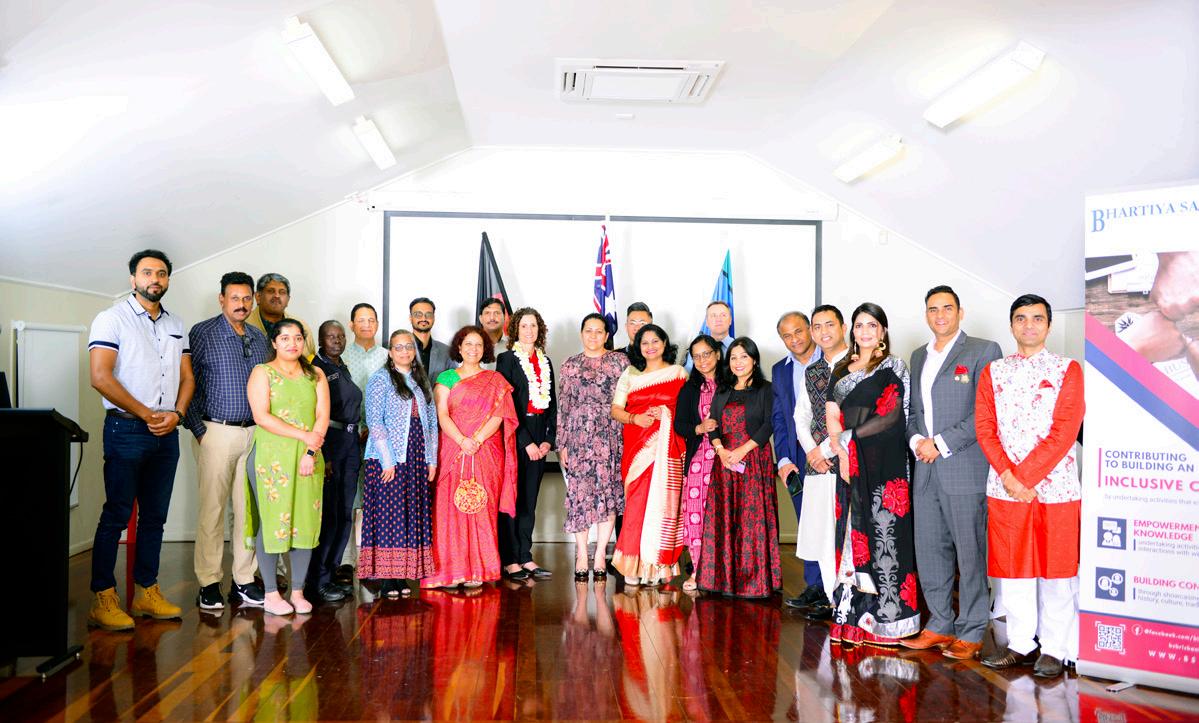
4 minute read
‘Empowering Migrants’ workshop to ease migrants’ settlement journey in Australia
More than 80 people attended a workshop titled “Empowering Migrants” recently. The workshop was organised by Brisbanebased charity Bhartiya Samaj at Upper Mt Gravatt Progress Hall in Brisbane, Queensland. The aim of the workshop was to lay the foundation of a series of sessions providing new migrants with accurate information and knowledge as they start their settlement journey in Australia. The workshop was addressed by keynote speakers, including Queensland and Northern
Territory’s Regional Director
Charlie Shandil, Multicultural Australia CEO Christine Castley, Doboy Ward Councillor Cr Lisa Atwood, Multicultural Affairs Queensland’s Strategic Settlement Partnerships Manager
Melissa Pignolet, South Brisbane’s Acting Inspector Dallas Kowald, Meditation Guru Chintan Gandhi aka Sanatana Goswami Das, Braid Salon - CEO & Entrepreneur and Media & Digital Adviser for MP Ross Vasta’s office Dr Cycy Ireland, Education Consultant
Mithun Patel and Director & Finance Manager George Massa. The dignitaries and speakers talked about their experiences during their journey of settlement in Australia, and enlightened the attendees on how the ‘Empowering Migrants’ workshop would make them "Australia ready."

One of the speakers, Queensland and Northern Territory’s Regional Director Charlie Shandil spoke about the story of his great grandfather, who came to Australia to become “more than a farmer”. “Settlement in this country in particular has a profound impact on individuals, children and future generations in your family. One thing that I have learnt from my family’s story is how important it is to be active and involved in the country that you live in whether you are a citizen or PR, it is critical that you play your role in this community,” Charlie said.
Another speaker, Multicultural Australia CEO Christine Castley said they (Multicultural Australia) would like to engage more with community groups to understand what people need information about and how (it is) to be shared from government and businesses to the people. “In the current environment, we have a lot of challenges around housing, where people have issues around the kind of house they can access, particularly for people newly arrived at basic pay. What you can access in terms of rent is very limited, so how people give us feedback is one way how we rate ourselves,” Christine said.
Speaking on the occasion, Bhartiya Samaj Brisbane’s president Abhishek Sharma said it was challenging for him to find the correct information when he moved to Australia. “I struggled to find authentic information on various issues. For instance, in which location to rent or buy a house, in which school we should get our kids enrolled in, what banks to use, information about the loading fee on the health insurance cover, how to sponsor my dad who currently lives in India or be it something as simple as applying for a driver’s license, or even finding the right electricity, gas, phone or internet provider. Those struggles led to the idea of organising Empowering Migrants. The key purpose is to provide accurate information with the help of subject-matter experts and raise awareness about the way of life in Australia,” he said.
Bhartiya Samaj Brisbane’s vice president Kriti Bhardwaj said the organisation’s vision is to support diverse communities in Australia and its goal is to make a positive difference in the lives of people. “Empowering Migrants is a right step in this direction. It will truly empower migrants with the right information, knowledge and inspiration, easing their journey of settlement, success and growth in Australia,” Kriti said. Migrants play a crucial role in the economic and social fabric of Australia. Australia is currently growing by one million people every two years, making it among the fastest growing countries in the Organisation for Economic Co-operation and Development.










